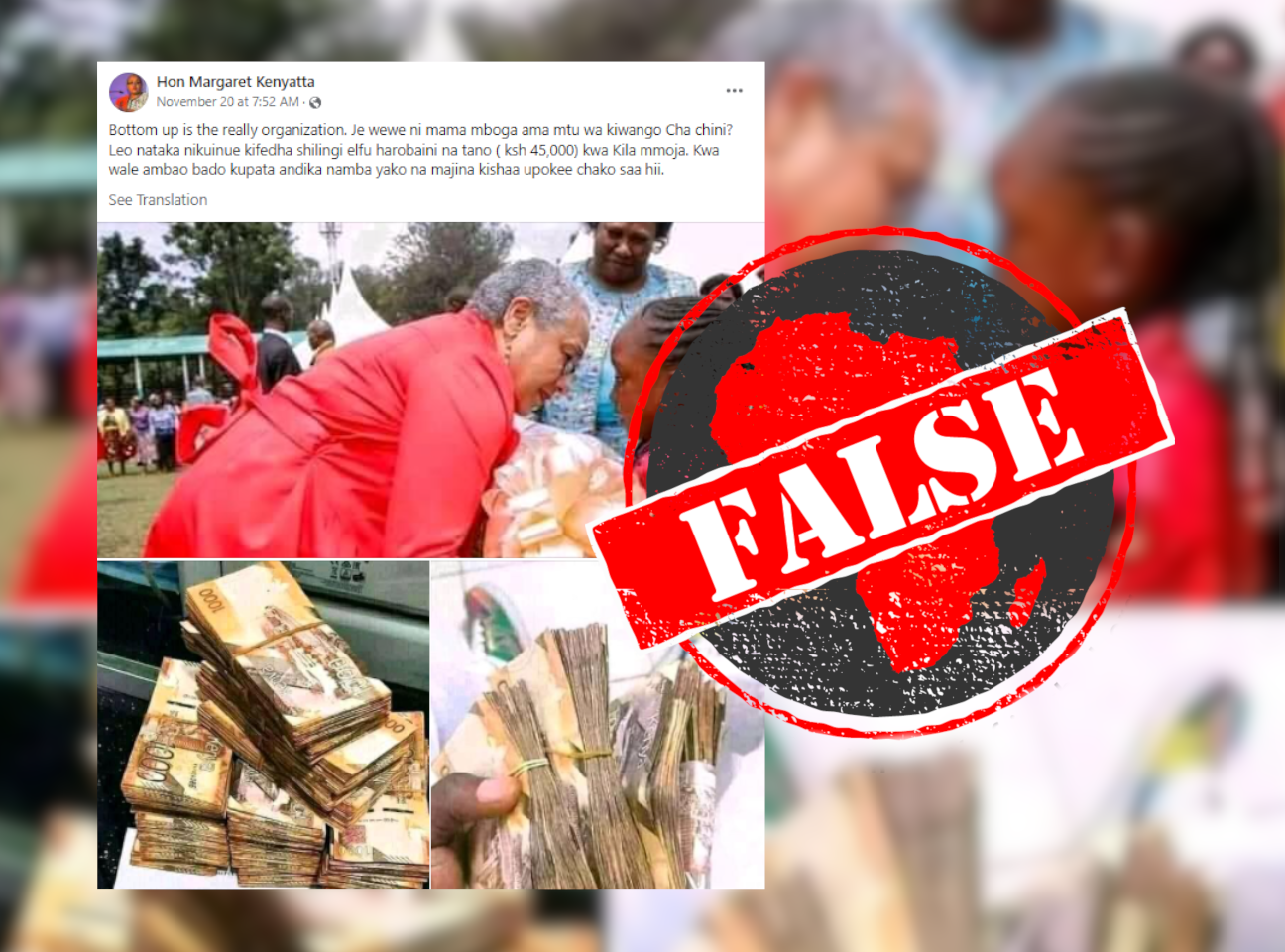A Facebook account in the name “Hon Margaret Kenyatta” has been advertising cash giveaways for some time.
The account claims to belong to Margaret Kenyatta, first lady of Kenya and wife of president Uhuru Kenyatta.
One of the posts says Margaret Kenyatta is giving away KSh45,000. It’s written in a casual mix of Kiswahili and English and says, in part: “Leo nataka nikuinue kifedha shilingi elfu harobaini na tano ( ksh 45,000) kwa Kila mmoja.” This means “Today I want to empower you with KSh 45,000” and seems suspiciously informal for someone like the first lady.
A different post asks those interested in the cash to “inbox your number and location” and says the money comes from “Inua Jamii funds”.
Inua Jamii is a government programme financially assisting poor households.
Many of the posts are published with photos of cash and Kenyatta. Could these promises be real?

Fake Facebook account
There are a number of signs that the account is not genuine.
Kenyatta has a verified official Facebook page. The page offering cash is not verified. It is highly unlikely that the first lady would operate two Facebook accounts and dedicate one to giveaways or cash loans.
Kenyatta’s official account advertises no such offers.
The grammatical errors on the page are another clue the account is not genuine.
The Inua Jamii Facebook page has also warned that it doesn’t offer loans. Any posts on the Facebook page impersonating Margaret Kenyatta should be ignored.
Republish our content for free
For publishers: what to do if your post is rated false
A fact-checker has rated your Facebook or Instagram post as “false”, “altered”, “partly false” or “missing context”. This could have serious consequences. What do you do?
Click on our guide for the steps you should follow.
Publishers guideAfrica Check teams up with Facebook
Africa Check is a partner in Meta's third-party fact-checking programme to help stop the spread of false information on social media.
The content we rate as “false” will be downgraded on Facebook and Instagram. This means fewer people will see it.
You can also help identify false information on Facebook. This guide explains how.



Add new comment